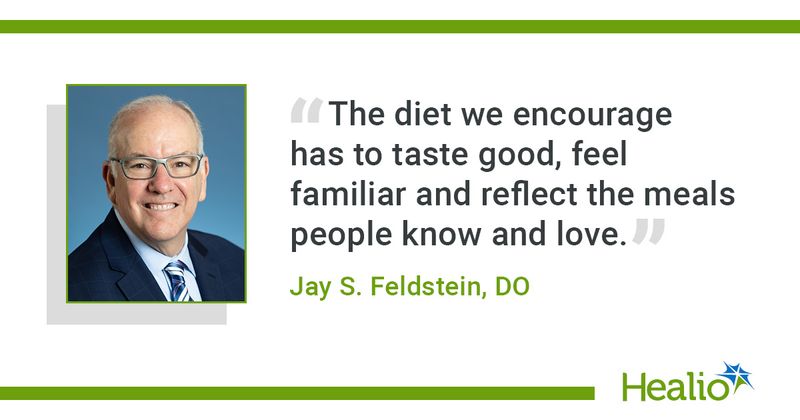August 21, 2025
3 min read
Key takeaways:
- Nearly 58% of U.S. medical students do not receive formal nutrition education.
- A culinary medicine elective has empowered students to become more confident in answering patients’ nutrition-related questions.
In recent months, nutrition education has surged into the national spotlight, propelled by HHS Secretary Robert F. Kennedy Jr.’s call for American medical schools to include nutrition courses in their curricula.
This declaration reflects a broader movement among educators and health professionals who believe physicians need stronger foundations in nutrition science to better guide patients toward healthier lifestyles.

A 2023 survey highlights a significant gap in nutrition education in medical training: nearly 58% of U.S. medical students received no formal nutrition education, while those who did reported only about 3 hours per year. This lack of emphasis leaves future physicians unprepared to support a more prevention-focused health care system.
Over the course of my career — as a practicing physician to health insurance executive to college president — I have seen the consequences of poor nutrition: crowded emergency rooms, hospital readmissions and the growing toll of chronic conditions like diabetes, hypertension and heart disease. These conditions rarely appear overnight. They often start with what’s missing from the table: access to affordable, nutritious and culturally meaningful food, along with the knowledge and support to use it well.
As a physician, I experienced the frustration of treating symptoms when the root causes of illness remained unaddressed. In the insurance sector, I saw how those same factors strained families and the health care system. Many current medical students seem to be missing out on critical lessons that should be incorporated into curricula, such as the importance of plant-based diets and how minimally processed foods can support weight loss, control high blood pressure and lower cholesterol. Now, it is my purpose to prepare the next generation of health care providers to see that one of the most powerful yet underutilized tools in medicine is not found in a bottle. It is found on the plate.
This idea is not new. Ancient healers understood the power of food to restore health and prevent disease. In today’s world, embracing food as medicine requires a shift — not just in how we teach medicine but in how we define health. It means treating food security, nutrition literacy and cultural awareness of food preferences as central to health care.
If we are serious about food as medicine, we must understand our patients as whole people — not just their medical histories but their traditions, their cultures and the realities of their daily lives. The advice we give has to resonate. The diet we encourage has to taste good, feel familiar, and reflect the meals people know and love. That is how we help patients make fundamental, sustainable changes.
In order to make these changes, we must equip future health care professionals with the knowledge and expertise to educate patients on the importance of healthy eating, which is why Philadelphia College of Osteopathic Medicine (PCOM) launched its culinary medicine elective in 2017 across all three campuses. Our students are learning how to integrate food and nutrition into patient care — from conducting healthy food demonstrations and tending community gardens to stocking food pantries at our health care centers or researching dietary guidance’s clinical impact.
PCOM’s culinary medicine elective has had a transformative impact on our students, empowering them to become more confident and well-rounded physicians. By addressing common nutrition-related questions from patients, the course equips future doctors — especially those pursuing primary care — with practical skills to discuss the links between diet and chronic disease, enabling them to provide thoughtful guidance and support.
Much more can be done to ensure patients have access to healthy food and nutrition education. Health care leaders need to champion policies that make nutritious options affordable and invest in community programs that provide culturally relevant and widely accessible resources. These partnerships will create an environment where patients receive sound nutritional advice — and have the means and motivation to act on it.
For me, this is personal. I have seen the challenges from multiple angles. Yet I have seen hope too. Treating food as medicine opens the door to better outcomes, stronger communities and lasting change.
That is a prescription worth writing.
References:
For more information:
Jay S. Feldstein, DO, is president and CEO of the Philadelphia College of Osteopathic Medicine. He can be reached at primarycare@healio.com.










